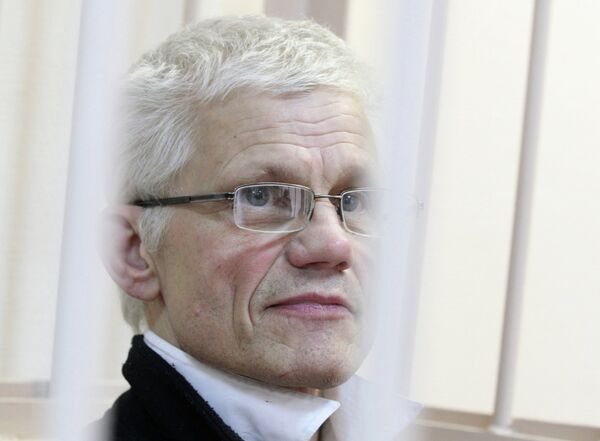MOSCOW, March 19 (RIA Novosti) – A Moscow court on Tuesday sentenced a man that vandalized icons in Russia’s largest Orthodox cathedral to a year of limited freedom, but released him for time served.
The court found St. Petersburg resident Yury Piotrovsky guilty of “vandalism incited by religious hatred” for pouring ink on two icons in Moscow’s Christ the Savior Cathedral in September, RAPSI legal news agency reported.
The cathedral was the site of a protest performance last February by the Pussy Riot punk band against the church and its perceived support for the government that landed several group members in jail on hooliganism charges.
Piotrovsky, a 62-year-old with a history of mental illness, was sentenced Tuesday to confinement in his home city for the period of a year, but was freed in view of the six months he had already spent at a pre-detention facility.
The court also banned Piotrovsky from visiting Christian religious sites for one year.
Prosecutors accused Piotrovsky of seeking attention as “an ideologue seeking to prove the falseness of religious teachings” by damaging icons, which are deemed hallowed objects by followers of the Orthodox Church.
Piotrovsky pleaded guilty to the charges against him and said he had sent a letter to Orthodox Church head Patriarch Kirill expressing repentance.
Piotrovsky said fellow detainees at pre-detention facility had helped him recognize the error of his ways.
“I changed 14 cells and was banished from many of them,” he said. “This helped me to reconsider my deed. I ask all believers for forgiveness.”
Piotrovsky had previously been confined to a mental institution, but experts ruled he was fit to stand trial.
His case bears some parallels with that involving Pussy Riot, who provoked widespread outrage with their punk prayer in the Christ the Savior Cathedral.
A clip of the band’s performance posted online showed the five-girl group high-kicking at the altar to the accompaniment of the song titled “Holy S**t” in which they urged the Virgin Mary to “drive out” Prime Minister Vladimir Putin, who was then standing for re-election to the presidency in March elections.
The song also poured scorn on Patriarch Kirill and believers.
Three band members, who were subsequently arrested for the protest, pleaded not guilty to charges of hooliganism aimed at inciting religious hatred.
A court sentenced the women to two years in jail, but later reduced one band member's punishment to a suspended sentence.


